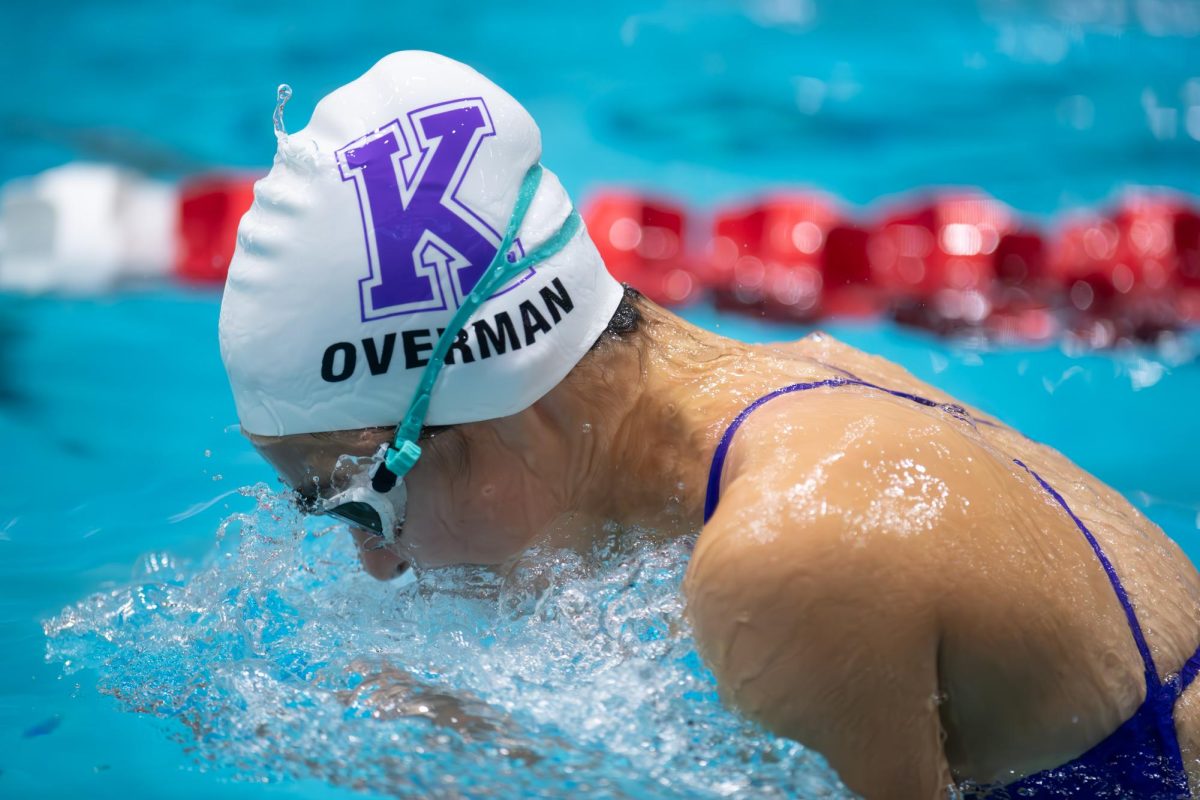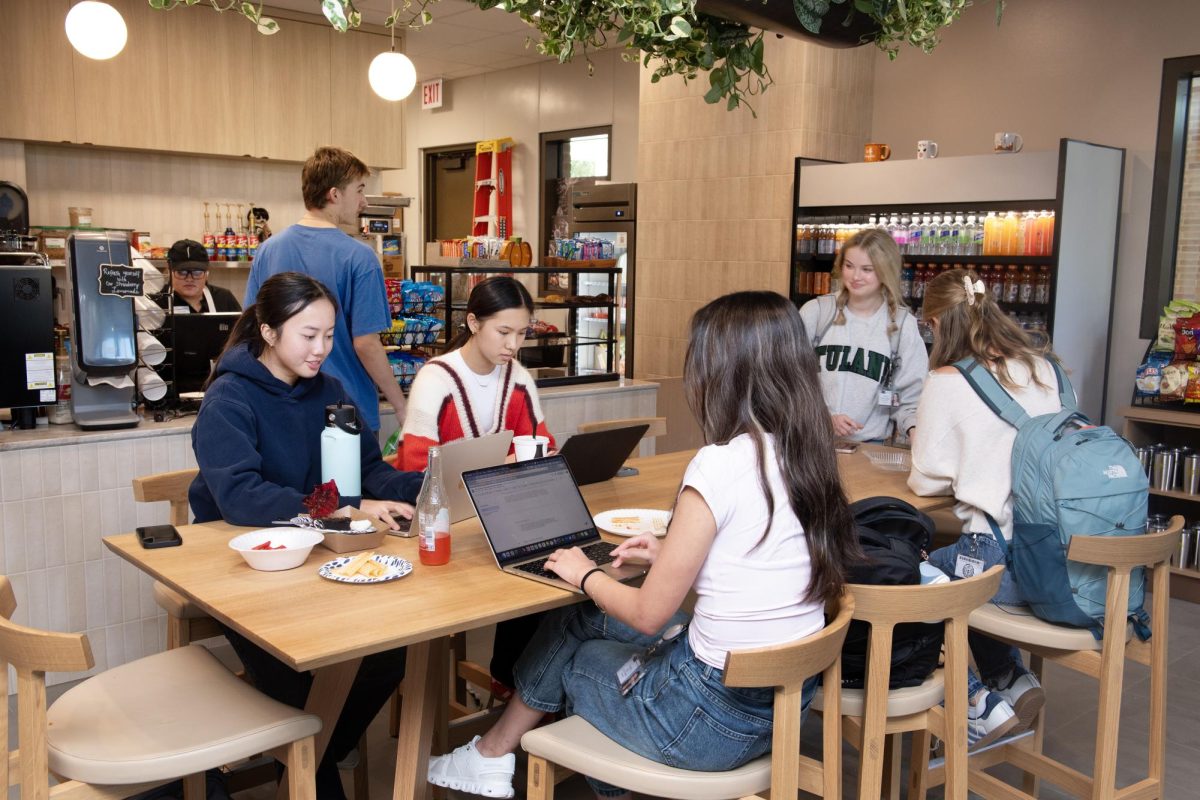Being well: staying healthy requires students to seek balance
Wellness needs to be a priority for high school students.
March 4, 2023
Seven hours of school, two hour practices, and around three hours homework per night. 12 hours of a day are spent accomplishing these tasks without even having the time to do the essentials such as eating, showering, and spending time with family.
Forget having time to practice self-care, reading for pleasure, or binging Netflix. Grabbing dinner with friends is just a setback for tomorrow. These are the testaments of high school students.
In the past few years, the idea of wellness has been brought to the forefront of the Kinkaid community. Students are taught to prioritize mental, physical and emotional wellbeing. Unfortunately, the work-hard, play-hard mentality of the community works against this ideology.
Up first is the work-hard mentality. Truth be told, not every student’s schedule is completely full, but some are overflowing. For juniors and sophomores with the ultimate goal of getting into college, attempting to make a “perfect” resume makes prioritizing wellness all the more difficult.
The looming pressure of college admissions pushes students to load up their agenda. Between the AP classes, standardized test preparation, varsity sports, fine art commitments, and community service, there simply isn’t enough time in a day.
“We are given way too much homework with the AP and honors classes. So I think on average junior year I slept like four or five hours every night,” said senior Lauren Heldebrand.
Jam-packed days eat into student’s sleep time, having a detrimental effect on their learning capabilities and overall wellness.
“If you sleep five straight days with six hours or less, you get a 60% drop in intellectual retention. So if you come in on Friday and you’ve been getting six hours or less all week, you come in at about 40% of what you’re intellectually capable of on Monday,” said Dr. Lomax Bream.
Thus, after a long five-day school week, students are exhausted. All week they lived day to day, struggling to complete all the work for the day. The best thing they can do is rest up during the weekend, prepare for the next week.
Unfortunately for high school students, this is not the case. Due to existing social pressures, weekends are the time high school students “let loose” and destress through the act of partying. Thus, we get the play-hard mentality.
“I’m 100% more likely to go out and party if my previous week is more stressful than the norm,” an anonymous senior said.
Administrators acknowledge this is a grave issue. According to Head of Upper School Mr. Peter Behr, substance use poses the greatest threat to student wellness.
“The things that keep me up at night of the wellness concerns are these weekend parties where, in many cases, parents are tolerating if not providing alcohol,” he said. “Those decisions are disasters, and I think that’s something we need to grapple with as a community.”
Using substance abuse to cope with high levels of stress is not unusual; actually, it is quite common.
In a study published by Cambridge University Press, it was observed that a significantly higher proportion of regular drug users among those who spent more than four hours per week on extracurricular activities.
The study found a higher proportion of students classified as “stressed” to be regular substance users when compared to both the total sample and the non-stressed group proportions.
“When you’re really stressed out during the week and then you go off and are exposed to varying quantities of alcohol on the weekends this of course also impacts memory, cognition and learning. It also screws up our social dynamics and sends emotions just through the roof on all kinds of issues,” said Dr. Lomax Bream.
Therefore the perfect storm is made. The culmination of sleep deprivation and stress induced substance use takes a significant toll on overall student wellness.
These are two of the main barriers to wellness in the Kinkaid community. But wellness is crucial to living a healthy, fulfilling life. Upper School administrators emphasize the need for wellness to be a priority.
“It’s extremely important,” Mr. Behr said. “It’s part of what we have to do as a school because we want to support our students.
In the following sections, we will break down where wellness initiatives have been implemented and how students can stay well.
Studying
While studying is essential to success in high school, it can also be very damaging to student well-being. Kinkaid students are no strangers to the stresses of studying.
However, the administration attempts to promote healthy study techniques by teaching students from a young age. Starting in middle school, students must take a course that teaches efficient studying and organization skills. Furthermore, in the required Decisions class, ninth-grade students are given additional tips about studying and avoiding procrastination.
In recent years, the school has adjusted to lighten the load for over-stressed students. For instance, teachers have implemented a testing calendar where they can share testing dates with their colleagues to ensure that students are not being buried in assessments simultaneously. No homework weekends occur a few times every semester to give students a break from studying.
“A lot of times, we take on more than we probably can do. Students just try really hard to compete with the competing demands of [having] the toughest curriculum,”” Mr. Behr said. “It is really important to listen to discuss with your Dean your current load to make appropriate adjustments as you sign up for courses for the following year.”
Maintaining wellness while working at a high level remains a life-long challenge. But, Kinkaid aims to challenge students while teaching them balanced studying habits.
Sleep
Little sleep is detrimental to growth.
As already mentioned above, sleep has been and still continues to be a major problem for Upper School students. The administration has made some changes that lead to students sleeping more. Said changes consist of late start days, with school beginning at 9 on some days, no homework weekends, the implementation block schedules, and a reduction in nightly homework guidelines.
These have had a positive effect on the overall student body, yet there’s still some progress that needs to be made.
“Since Freshman year I am definitely sleeping more, but the major problem I finding with sleep is teachers respecting the homework limits,” said senior Lauren Heldebrand
Again the administration is aware of this problem and continues to advise students to talk with their teachers about possible solutions when feeling overwhelmed.
Fitness
Staying fit undeniably improves mental health and overall well being. Kinkaid promotes student fitness by requiring that each student participates in at least six sports throughout their four years of high school. Additionally, an on-campus gym is available to students before, during and after school hours.
“We are very fortunate to have great coaches and other faculty members that allow us to achieve our fitness goals,” said senior Lincoln Colter.
Nutrition
For high schoolers, nutrition is especially important as they develop from teenagers into adults. But nutrition for teens isn’t about having a perfect, clean diet. It is more about having a well rounded lifestyle. Having a bag of chips, or ice cream isn’t the end all be all.
The cafeteria here at Kinkaid has taken initiative to provide healthy options for students. For instance, a daily salad bar is full of a variety of fresh vegetables and healthy sides.
“Kinkaid has both healthy and unhealthy options, so students are able to make those healthy decisions. The healthy options are always available,” said senior Elena Loya.
Mindfulness
As it has already been proven, Kinkaid students are continually busy, and it is very easy for them to be stressed. One way to remediate said stress would be through mindfulness.
“Mindfulness is finding peace within yourself,” said senior Will Pielop.
Pielop and other seniors agreed upon reflecting on their last four years and found that their mindfulness improved in the freshman year course Decisions, and all school activities, such as Electric lunch.
“I hope the school can do more to incentivize more all school activities for students in the coming years,”said Pielop.
Belonging
Belonging is an essential for any student to succeed. However no matter what the school does, there is not one solution that can fix all the problems. One of the biggest difficulties with belonging at Kinkaid comes with the problem that each student enters Kinkaid at a different time.
The older grades students enter the more difficult they find it to make friends.
“I came in ninth grade, and I still struggle to feel like I belong, as I came knowing nobody, and everyone already had their previous friend groups,” an anonymous sophomore said
Moreover even some lifers at Kinkaid understand how some new students feel like they don’t belong.
“Well I have been here for 14 years now, so I obviously feel like I belong,” said Cooper Buck a senior lifer, “That being said I can easily see how some of the newer students feel like it is difficult to find their place.”
Service
Kinkaid takes community service to the utmost seriousness. Failure to complete the community service credit can cost a senior their diploma. Each year, high school students must complete a minimum of 3 hours of community service. Many students exceed this requirement in out of school hours, and complete additional school projects.
Volunteering is proven to have a positive impact on mental health and well-being. Research says that 94% of people who volunteer say that volunteering improves their mood. Psychologists call this a “helper’s high.”
“I think the fact that we have a community service program is a testament to the resources that Kinkaid provides to students,” said Nick Bhasin, Vice President of the Community Service Leadership Council. “But I think there could be improvement when it comes to the perception of the community service credit and shifting away from one that’s not a requirement but rather an opportunity to serve.”















